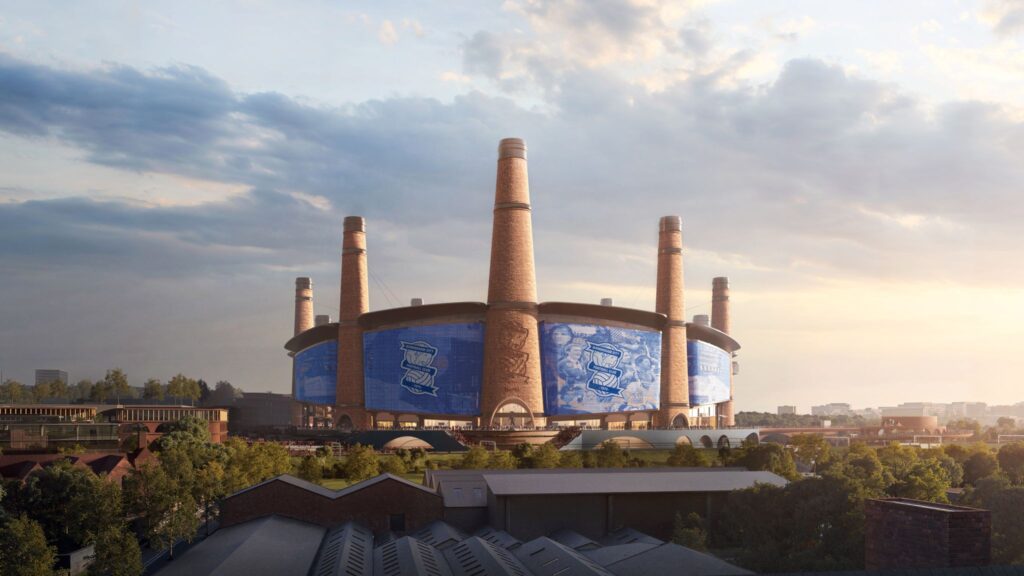Birmingham City have unveiled bold and futuristic designs for a new 62,000-capacity stadium, a project the club expects to open in time for the 2030–31 season. The proposed Birmingham City Powerhouse aims to transform the club’s identity and elevate the city’s profile with a landmark venue unlike any other in the country.
The design showcases 12 towering chimney-style structures inspired by Birmingham’s rich industrial history. These dramatic vertical features will dominate the skyline and are expected to be visible from as far as 40 miles away. One of the towers will house a lift leading to what is projected to become Birmingham’s highest bar, offering sweeping views of the entire city.
Club chair Tom Wagner described the project as a “modern-day Colosseum” and a symbol of ambition for both the team and the wider region. He emphasised the desire to create a venue that stands out nationally while acknowledging the city’s heritage and potential. According to Wagner, the stadium will serve as a catalyst for renewed confidence, helping reposition Birmingham as a major hub for sport and entertainment.
The multi-functional design also includes a roof capable of retracting within 20 minutes, allowing the venue to seamlessly transition between different types of events. A movable pitch will further support a wide variety of uses, including NFL games, rugby fixtures and large-scale concerts. Despite these additional purposes, the club insists the stadium will remain “football-first,” designed primarily to enhance the matchday experience for supporters.
The stadium will form the centrepiece of a larger vision for a sports and entertainment quarter, representing a £3bn development across 60 acres near St Andrew’s. This extensive regeneration is positioned as a long-term investment in the club, the community and the city’s economic future.
A promotional campaign supporting the launch of the designs featured academy graduate Jude Bellingham, minority shareholder and former NFL star Tom Brady, and actor Paul Anderson, known for his role in the Birmingham-set series Peaky Blinders. Their involvement underscores the project’s cultural significance and broad appeal.
Wagner highlighted that the venue is intended to operate all year round, offering world-leading acoustics and an unparalleled fan experience. He described the proposed stadium as a global beacon for Birmingham, attracting top-tier sporting and entertainment events while becoming a permanent and iconic home for the club.
If realised, the Birmingham City Powerhouse would stand as one of the most ambitious stadium projects in Europe, symbolising a new era of aspiration and investment for both the club and the region.

